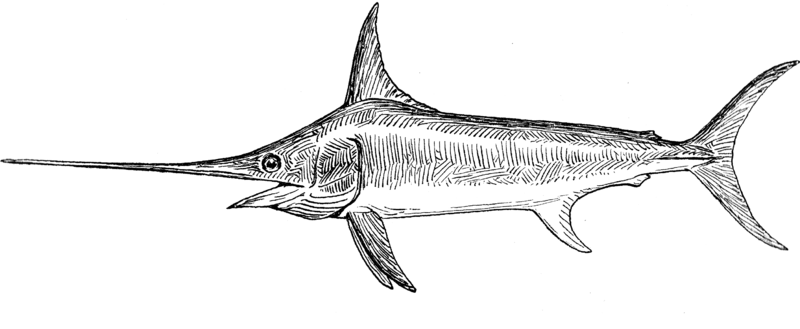Restaurant Succumbs To Environmentalist Pressure
Environmentalists are taking credit for Red Lobster Restaurant’s decision to remove swordfish from their menus throughout the United States. Red Lobster is part of Darden Restaurants Inc., the worlds largest casual dining restaurant company.
The California-based Sea Turtle Restoration Project launched an aggressive campaign in August 2002 (see Seafood Business: http://www.seafoodbusiness.com/archives/02sept/sword.htm) to get Red Lobster to remove swordfish from their menu. The campaign included protests in front of Red Lobster and the West Coast Seafood Show, and a grassroots petition/letter writing effort (which generated over a 1,300 signatures and letters) to Darden’s CEO, Joe Lee. The campaign also included the testing of swordfish for mercury purchased at the Red Lobster followed by a notice of intent to sue Red Lobster for its failure to warn consumers under California’s toxics right to know law (Proposition 65), and a full-page ad published in The New York Times warning consumers about high levels of mercury in swordfish (see downloads/ACF4706.pdf)
The environmental campaign pointed out the high levels of mercury found in swordfish and the impacts that industrial swordfish fishing methods are having on the current extinction crisis facing endangered Pacific leatherback turtles and other marine species.
Despite the Sea Turtle Restoration Project’s extensive campaign efforts, Red Lobster guest relations representatives did not admit to a direct link between environmental activists’ actions and their removal of swordfish from their menus. However, individual restaurant managers did state that mercury in swordfish and the impacts to turtles may have played a role in the removal of swordfish from Red Lobster menus. Senior guest relations representative for Red Lobster, Stephen Herring said that swordfish, “is one of the many items that Red Lobster carries some times but not others”. Stephen also indicated that there are no other reasons why swordfish has been removed from the menu. He did indicate, however that customer demand for swordfish was down.
“We are pleased to know that swordfish demand is down” said Andy Peri, Marine Species Campaigner for Sea Turtle Restoration Project, “we expect that demand will continue to decrease as our campaign escalates and the public becomes aware of both the high levels of poisonous mercury in swordfish and the devastating impacts to endangered sea turtles caused by longline swordfishing”.
The Sea Turtle Restoration Project originally launched its campaign with the As You Sow Foundation after conducting laboratory tests on swordfish purchased at Red Lobster to determine methylmercury levels. The results of the testing indicated high levels of methylmercury in swordfish samples. Methylmercury is the most toxic form of mercury to humans.
“Red Lobster’s swordfish had amongst the highest methylmercury levels in our survey of more than 10 businesses” said Peri. Data indicated that mercury levels frequently exceeded the FDA limit of 1 part per million, of methylmercury in swordfish with one Red Lobster sample being over 220% higher than what the FDA allows.
As a result of these findings the Sea Turtle Restoration Project filed a notice to sue Red Lobster and 5 major grocery chains under Proposition 65. Based on the data, the California’s Attorney General decided to take over the suit, which is currently on-going. The suit alleges that all of the defendants failed to provide clear and reasonable warnings on fish containing high levels mercury; these species include swordfish, shark, tuna, king mackerel and tilefish.
Sea Turtle Restoration Project has observers throughout the nation monitoring Red Lobster restaurants to ensure that they are maintaining their commitment to not sell swordfish. “Swordfishing is a highly devastating industry that is responsible for the near extinction of the Pacific leatherback sea turtle in just the last 20 years,” explains Sea Turtle Restoration Project Director Todd Steiner. According to scientists, the Pacific leatherback population has declined by 90-95% since the 1980’s largely as a result of the rapid expansion of industrial longline fishing.
Earlier this year, 400 scientists and 100 non-governmental organizations called on the United Nations to ban high-seas longlining and gillnetting in the Pacific because of the devastating impacts these fisheries are having on sea turtles, sharks, whales, dolphins and sea birds. Their open letter was also published in a full-page ad in The New York Times downloads/unltrscr.pdf
“We applaud Darden Restaurant’s move to end the sale of swordfish, and we will continue to monitor their menu to ensure that swordfish does not reappear. In the meantime, our campaign will begin to focus pressure other restaurants, importers, distributors, processors to do the same.
The Sea Turtle Restoration Project is a California-based marine conservation organization that works to protect sea turtles and other marine species in the United States and in oceans around the world.
For more information on mercury in swordfish, its impact on human health and Prop 65 lawsuit, visit www.seaturtles.org, (go to programs and campaigns and click, “Mercury, Swordfish and the Sea Turtle Campaign)
For more information on the extinction crisis facing Pacific leatherback, visit: www.seaturtles.org (go to programs and campaigns and click, “Sustainable Fisheries Solutions Program”)
For photos and illustrations of sea turtles, swordfish, the mercury warning now appearing in California supermarkets, contact Andy Peri at andy@seaturtles.org or at 415-488-0370 x104.
To contact Red Lobster call, 800-562-7837




